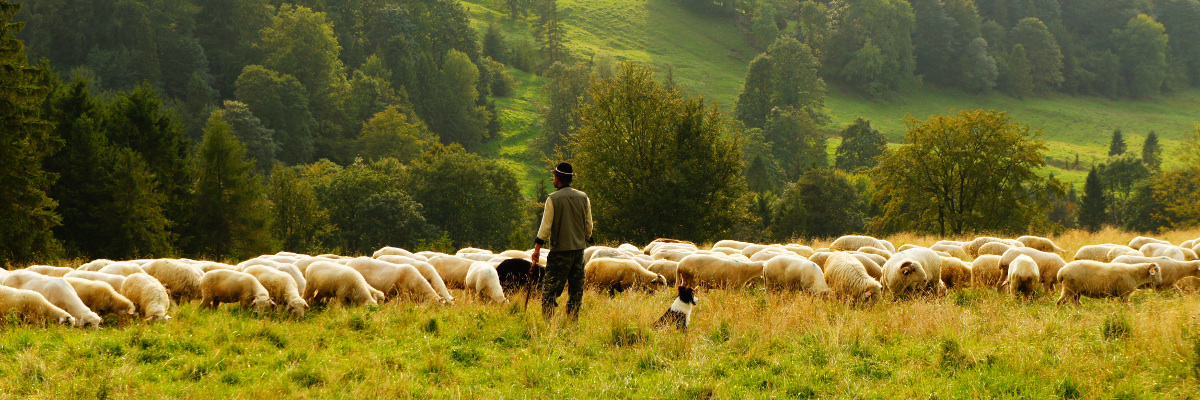Do you think that rational decision making always gives the right answer? Let’s assume, for a moment, that whenever we have a choice we should use our reason to find the option that enables us to secure our best interest. There are no sentiments, emotions – just pure rationality.
Now imagine that you are herdsman owning few animals feeding on local pasture.
You earn some amount of money from each of them – this is your profit. On the other hand your costs are connected with overgrazing the pasture. More animals eat more grass so there is less food left for others.
Let’s add other people into equation by assuming that the pasture is commonly owned. Other users are also herdsmen who have their own interest in mind. In this case they also get all profit from expanding their herds. All costs are shared equally among all community as animals can roam freely around the pasture.
So what should we do?
Our best interest is our profit.
In this situation our best interest is our profit. It can be increased by adding a new animal to the herd. We receive profit from this one animal and only the fraction of the costs that it generates. Therefore we should add more and more of them until we get to the place where potential costs connected with introducing new animal into herd are higher than additional profit. We also have to keep in mind that others, being as rational as we are, should do exactly the same. The result is obvious – overgrazing and destruction of the pasture.
You think that you shouldn’t take part `in this ‘rat race’? Think again. Even if you only want to secure your profit you should follow the same strategy. Keeping your own herd small doesn’t help you. As others introduce new animals into the pasture your profit doesn’t change but costs become higher and higher. Therefore you lose your income. To secure it you should expand your herd with others. We’ve seen that it leads to overgrazing and the destruction of the pasture.
This is the exact example used by Garrett Hardin in his landmark article ‘The Tragedy of the Commons’. He argued that rational decision making always lead to overharvesting of the common pool resources (CPRs). Whenever people actually use their reason this collapse is inevitable. As in ancient tragedy, the fate of the CPRs is sealed.
Pasture owned by the community is only one example of the CPR.
Such resources have two distinct qualities. First one is subtractability. It means that when one unit of resource is removed from the pool it is no longer available to other users. If you cut a tree in the forest or catch the fish from the pond it is yours and others can’t use it anymore. Second one is that it is non-excludable. It is impossible or hard to ban someone from using it. It may be for various reasons. For example their rights to use it may be guaranteed by law. In other cases, for example some large CPRs can be too costly to monitor and it would be close to impossible to force someone not to use them[1].
This leads us to the core of the problem. There are many large CPRs that are key to our long-term survival. For example oceans or tropical forests with all their biodiversity. They fall into category of CPRs because they are not easy to protect. And they are being overharvested right now. Some argue that our atmosphere can be treated as CPR and tonnes of CO2 is being emitted into it in this very moment. We all face the problem and we will have to bear its consequences.
But are we really doomed? Is the tragedy of the commons really inevitable and how we can look into this problem?
The future may not be so grim as the theory states. The experimental research in this area shows that there may be hope for us after all. And the solution can be found using games.





